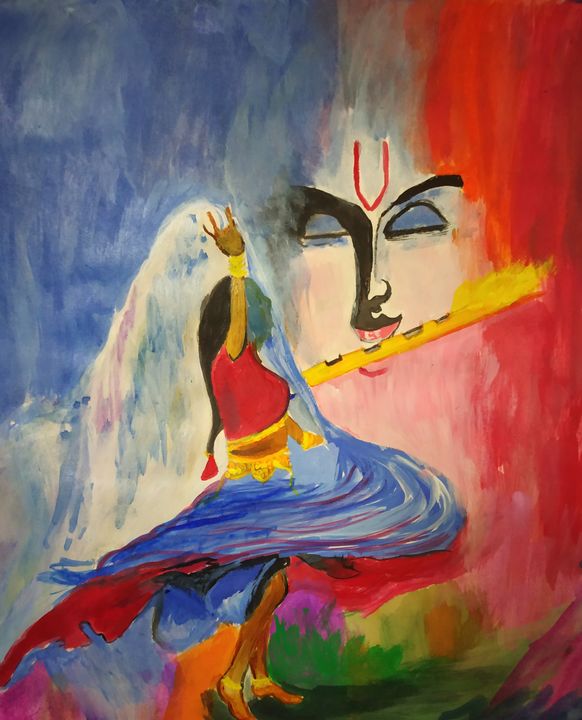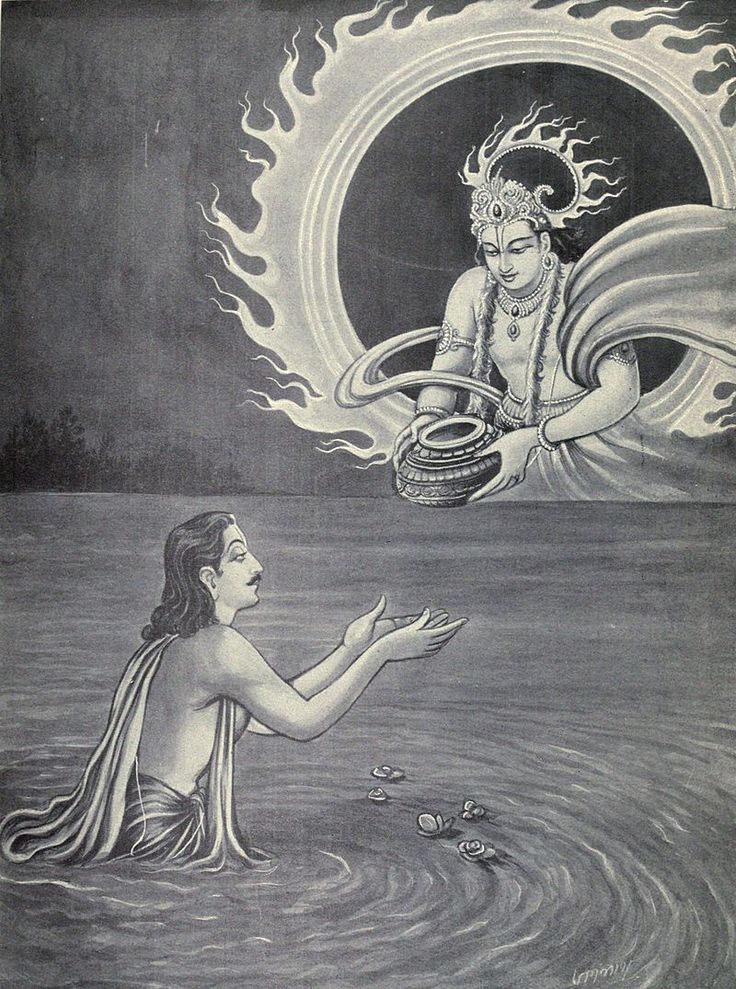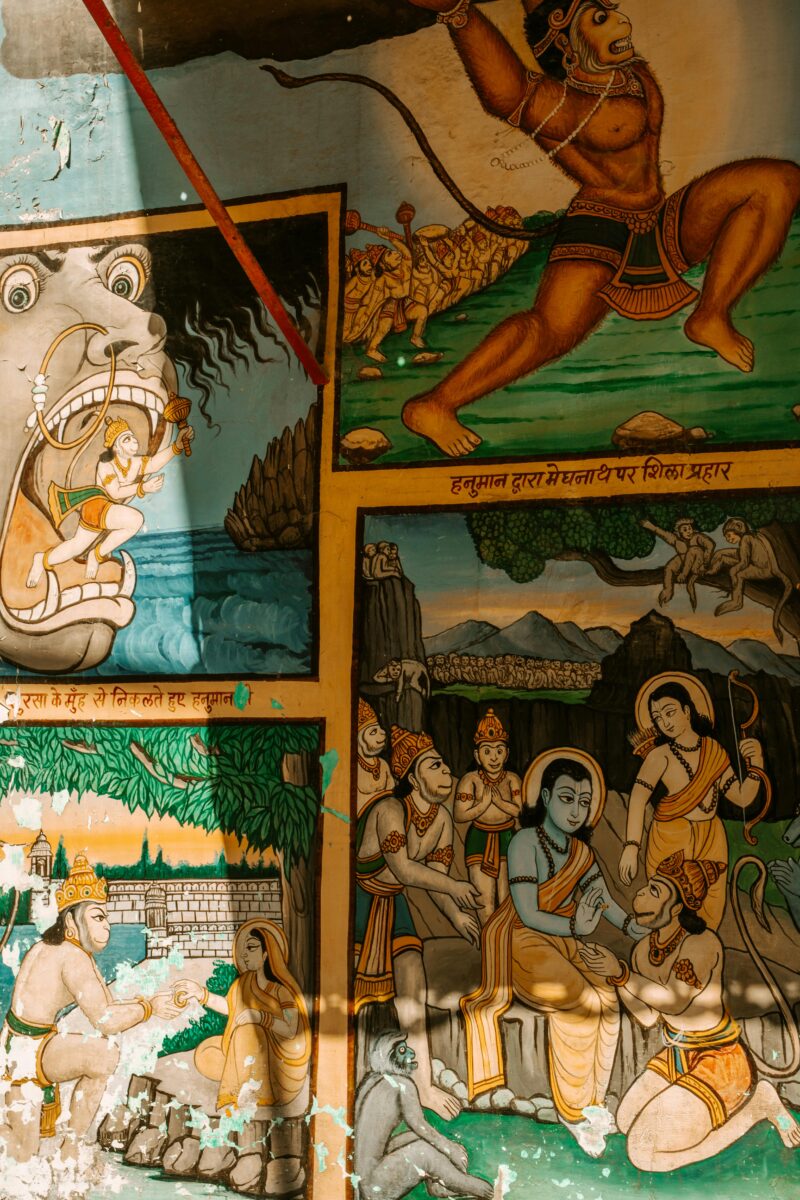Bhagavad Gītā 10.11 is one of the most intimate revelations Kṛṣṇa makes about His relationship with His devotees. It is not a call to ritual or scholarship; it is a personal commitment. Kṛṣṇa is not speaking here as a distant deity or impersonal force—He is speaking as a compassionate Lord who deeply notices even the smallest effort made with love.
He says:
“To those who constantly worship Me with love, I give the understanding by which they can come to Me.”
This verse is a divine assurance. Kṛṣṇa is saying: “If you love Me, if you sincerely engage in devotion—even if imperfectly—I will guide you. I will make sure you reach Me.” This is not a vague promise. It is detailed, personal, and active.
Who is this guidance given to? Not to the most learned, nor the most austere, but to those who engage in bhajan—with feeling, with sincerity, with heart. Those who chant His name, offer Him service with affection, or at least strive to do so with honest intent—they attract His attention. Their effort may be small by worldly standards, but in the divine equation, it holds immense weight. To such souls, Kṛṣṇa gives anukampā—His divine compassion.
This compassion, this mercy, is the greatest treasure for a devotee. While the world may measure value in terms of wealth, fame, or position, a devotee measures value by how much mercy they’ve received from the Lord. That is the true currency of spiritual life. And this verse reveals that such mercy is not random or accidental—it is promised.
Kṛṣṇa continues by saying, “I destroy the darkness born of ignorance with the lamp of knowledge.” This is even more astonishing. Not only does He guide, He intervenes directly. He does not send agents. He does not delegate. He personally takes responsibility for the spiritual progress of the one who loves Him. The ignorance that has covered the soul for lifetimes—mistaken ideas like “I am this body,” “I am the doer,” “I am the controller”—is removed by Kṛṣṇa Himself.
And how does He do it? Through His Name, through the words of the Gītā, through the association of His devotees. When someone sincerely engages with these, the cleansing begins. The heart, long weighed down by selfishness and forgetfulness, begins to clear. But Kṛṣṇa doesn’t stop at cleansing. He goes further. He beautifies the heart. He awakens divine love. He restores the original nature of the soul—its lost identity as a loving servant of God. This is known as svarūpa-siddhi, the realization of one’s eternal relationship with the Lord.
The “lamp of knowledge” that He mentions is not ordinary information. It is not theoretical understanding or memorized verses. It is experiential realization. It is a living awareness that dawns within the devotee. One begins to see reality as it truly is. The Name is no longer just a sound—it is Kṛṣṇa Himself. The deity is no longer a statue—it is His presence. The devotees are no longer ordinary people—they are embodiments of His grace. This vision comes not from years of study alone, but through His mercy, His light.
And what does Kṛṣṇa ask in return for all this? Very little. A leaf. A flower. A drop of water. Offered with love—that is enough. Just a little affection from the heart, and He gives everything in return. His exchange is so generous, so loving, that it feels disproportionate. In this world, no one gives you a million in return for a pebble. But Kṛṣṇa does. He says, “Take one step toward Me—and I will take ten toward you.”
This one verse gives strength to the struggling sādhaka. When doubts creep in—“Is my bhakti reaching Him?”, “Does Kṛṣṇa see me?”, “Will He respond?”—this verse answers with divine certainty: Yes. He sees. He responds. He is already acting in your favor.
And He never breaks His promise. While human beings often fail to keep their word, Kṛṣṇa never does. Even if He wanted to withdraw His mercy, He cannot—for He is bound by love. That is the glory of God in bhakti: He becomes conquered by affection. Devotion binds Him more surely than rituals or logic ever could.
So, this verse is not just a line in the Gītā—it is a life-saving assurance. It is an invitation to continue, to not give up, to stay steady in chanting, hearing, and serving. Even when the world outside is chaotic, even when the inner world feels dry, this verse remains a lamp. It reminds us that the Lord is near, attentive, and active.
Let this verse become part of our inner life. Let us return to it often—not just to read, but to absorb, to live in it. Because in this single statement, Kṛṣṇa reveals the full beauty of His heart:
He loves those who love Him—and He leads them back home.









